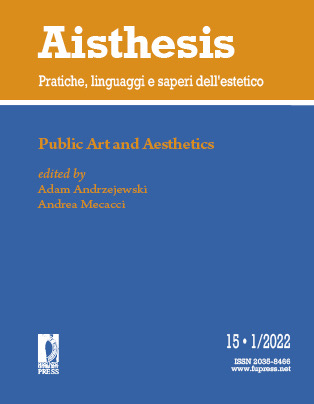Published 2022-08-02
Keywords
- Walter Benjamin,
- Immanuel Kant,
- History,
- Messianism,
- Happiness
How to Cite
Abstract
On the basis of a citation from the final part of Walter Benjamin’s Theological-Political Fragment (1920-21), we shall hypothesize a similarity between Benjamin and Kant, the political thinker and philosopher of history, in his Idea of a Universal History with a Cosmopolitan Intent. According to Kant, the man who participates in history and in the human race seeks happiness and the means to procure it for himself as a member of «free» humanity, thus seeking to unify external freedom and happiness in institutions of law. During the period 1920-1921 Benjamin was strongly critical of the concept of law, including also that of Kant, which he saw as contradictory to the idea of justice; in opposition, Benjamin held first an anarchist-libertarian view, then a revolutionary one. From a dialectical perspective, however, we find in common in Benjamin and Kant a redemptive pessimism that foresees, in the «twisted wood» of mankind, an ultimate providential and messianic possibility: «The spiritual restitutio in integrum, that leads to immortality, correspond to a worldly restitution that leads to an eternity of downfall, and the rhythm of this eternally transient worldly existence, transient in its totality, in its spatial but also in its temporal totality», the eternal succession of generations and their institutions, which is «the rhythm of messianic nature», is happiness. Nature eternalizes itself in this virtual spatial and temporal totality in the history of humanity moving toward the realization of the idea of law and, spatially, the achievement of global, cosmopolitan politics: «nature is messianic by reason of its eternal and total caducity».


